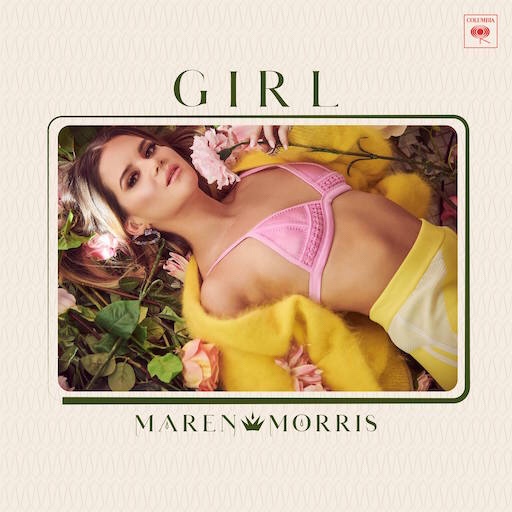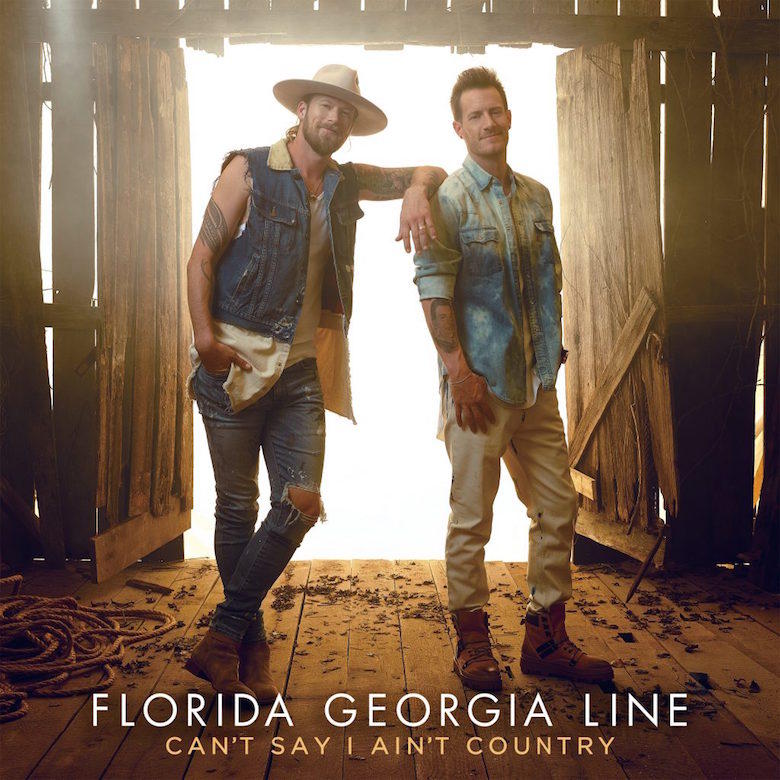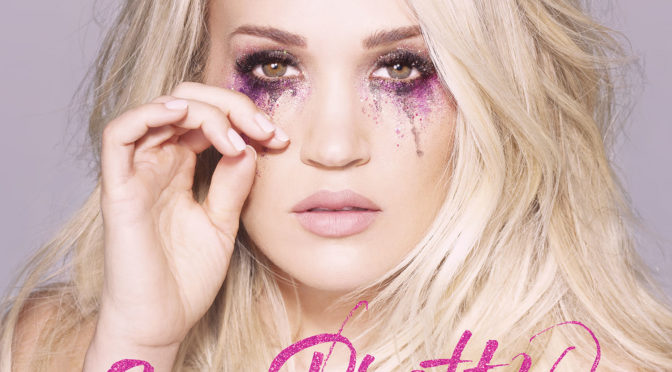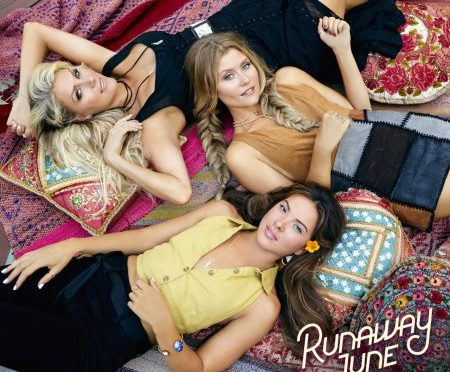Too often, in the discussion of “real country” and keeping tradition alive, we see independent fans choosing to dismiss the mainstream altogether. It’s certainly easy to do when you discover all the alternatives and realize there really is substantive songwriting and actual country instrumentation out there thriving, just beyond the lenses of radio and streaming playlists. But completely turning our backs on the commercial side of country music could potentially have damaging effects on the genre’s longevity. I teamed up with Zackary Kephart of The Musical Divide to talk about why paying attention to and covering mainstream country is still necessary. Read that below!
Megan: Last year around this time we did a piece together on “real country” and the artists still keeping it traditional. But there’s also the other side to this coin, where many traditionalists and fans of independent country dismiss the mainstream out of hand. I know for you, this came to a head recently over Lauren Jenkins’ album. What would you say in response to people who say country radio and the mainstream are lost causes, and we should just focus on the independent world?
Zack: Well, I’d say it’s entirely their choice as music consumers. But personally, as a self-appointed critic and scholar of the genre, I’d advise against this. Whether we like to admit it or not, the country music industry is a business. Critically, and objectively, I always think of country music in terms of how others see it. For example, right now it’s likely viewed as a dumping ground for unfair stereotypes given the Lil Nas X debate. When artists like Maren Morris, Kane Brown, or Luke Combs, three of the biggest current names, release a new song or album, they’re the faces of country music. So I’d say it’s important to take stock in and care about the genre’s mainstream. Like it or not, the debates always circle back to the mainstream anyway. Right now, country music is in the midst of an identity crisis not unlike the one it suffered in the early-to-mid ’80s. Sure, I have other options, but I still care about country music and how it’s being portrayed to the public.
Megan: Don’t get me started on that debate; that’s a whole other piece entirely. But yes, country is definitely in an identity crisis and is being ridiculed on the basis of a lot of negative stereotypes right now. Some of those stereotypes certainly have a basis, but it’s discouraging to see such a one-sided, disparaging approach to the genre by so much of the mainstream media right now. Again, though, that could generate a whole other discussion on its own. As far as how the genre is presented to the public, I can’t overstate the importance of this. I think that often, we who have turned off country radio and discovered the independent scene forget that at one time, we didn’t really know there were alternatives. You can argue that radio is irrelevant, an assertion I don’t completely agree on anyway, but even if you do hold this viewpoint, streaming playlists are arguably even worse than radio at portraying the country genre. It’s easy to forget that the mainstream is the mainstream for a reason; it’s still the most popular music. It’s still what most of the next generation will use to determine what “country” sounds like. If we abandon it altogether, I believe we put the long-term future of the genre in danger. You mentioned the ’80s, which is a great comparison, but where would we be right now if everyone had given up on the mainstream back then?
Zack: Well, the thing with the ’80s compared to now is that we didn’t have those alternative sources. You lived and died by those radio playlists. Of course, we had also had an onslaught of country music related movies such as 9 to 5 and Honeysuckle Rose during this time. The biggest example is obviously Urban Cowboy, an event that caused everyone to want to be “country.” When that trend faded away, and all of the bandwagon jumpers left, country music had to reclaim its core audience. I think we’re seeing that now with the career resurgences of Brooks & Dunn, Reba McEntire and George Strait. Luke Combs, Riley Green, and Midland are further examples of trying to bring that traditional balance back in. That balance is what’s off-center, currently. The faces of the genre are the aforementioned names along with, say, Thomas Rhett. Granted, I liked his last album, but critically, he’s barely a country music artist. But he represents country music to so many right now. He’s also popular, and people like his music, statements that apply to every other popular country music artist right now. Radio is not irrelevant, but again, that also depends on whether you’re talking personal or cultural importance. People often think within the limits of their own perspectives, which is fine. But you’re right, it’s still the leading platform for preferred listening experience. It’s the same thing as saying award shows don’t matter. Tell that to Chris Stapleton.
Megan: “People often think within the limits of their own perspectives”; this is a great point and absolutely correct. People forget that the artists you mentioned are rewriting country’s history, and the people that grow up listening to Rhett and Morris will believe this is what country is supposed to be. This kind of thinking will erode the genre and completely rip it from its roots. This is also why I think the other important reason to cover and discuss the mainstream is to highlight those artists who are moving the genre forward and still respecting the roots. This is why it’s so frustrating that an artist like the aforementioned Jenkins, who can rightly be called pop country, has had virtually no support from Big Machine Records while Rhett, Morris, and others are the faces of the genre. Why do you think labels are ignoring artists like Jenkins while promoting straight pop and R&B and rap as country?
Zack: Well, Jenkins has explicitly stated that her team won’t even bother with radio, since they believe they can reach an audience without exploring that avenue. Perhaps it’s a bold, innovative move, but it’s also frustrating that this is a new mindset. I’d of course love if this could be the new model, but as you said, the alternative is streaming playlists. Even there, the idea of radio continues to live on. People enjoy being given a playlist they can listen to hassle free. With an endless array of music, we’re now faced with the tyranny of choice. Basically, it’s easier to listen to someone else’s recommendations. So playlists that are somehow even more male-focused are the new “norm” for listeners. There are many things worth fighting for in country music. Gender equality, representation of other sorts, and sanctity of the genre’s roots. Caring about having that equal balance though brands you as out of style or as a “purist.” It should come as no surprise that the face for traditional country music right now is Luke Combs, a guy who looks like he could change your oil at Jiffy Lube. Jamey Johnson and Stapleton are further examples. Meanwhile, here comes Rhett, Morris or King Calaway where it’s clear the focus is more on the image. And again, this has little to do with pure taste. I personally like Rhett, but critically, I believe it’s still worth our time and effort to care about country music and its portrayal.
Megan: It’s interesting in the case of Jenkins that they believe they can promote her album without radio. In general, I believe that can be done; we’ve seen it with Stapleton certainly and most recently with Kacey Musgraves. But with Jenkins, it feels like she’s caught in a weird place with that strategy, being too pop for many independent fans to take notice. She’s the kind of artist that should be promoted in the mainstream because the music seems to find more of a balance and be more radio-friendly without compromising the lyrics. It’s a shame they went this route because this is the kind of music I want to see pushing the genre forward. We need good pop country as much as we need the traditionalists like Luke Combs. As far as taste, yes, it has very little to do with that. Once again we are called to look beyond ourselves and see the bigger picture. People like Combs aren’t ever going to be the next Jason Isbell, but that’s not what we need in the mainstream to help carry the genre forward. You mentioned King George Strait a moment ago, and this brings me to a point I’ve made several times on CE while defending the importance of the mainstream. People point to the outlaw movement all the time as saving country music from Nashville in the 70s and putting the creative control back in the hands of the artists. This is all true, but look at Strait. He was signed by MCA in 1981 and given only one single because he was thought to be too traditional. Here we are almost forty years later, and he’s still on that same label with one of the longest, most commercially successful careers in all of country music. He did his part, along with others, to turn country back to its roots, but from the inside. King George never reinvented the wheel, but he is as important to the genre as any of the outlaws. We need artists like that today, solid, traditionally minded artists who can carry country music’s legacy forward by making it appeal to the masses.
Zack: Your points about Strait call important points to mind. With him, and even Waylon Jennings and Willie Nelson before during the outlaw revolution, they wanted to change the system. Jason Isbell, Sturgill Simpson and Margo Price don’t care to bring that type of change, which is fine. But it highlights a big difference between decisions made then and now. Strait represented an alternative to what was popular, just as certain artists such as Combs and Midland do now. Is it the exact same scenario? Of course not. But change requires more than just firing off a few tweets. It requires active change on the inside. Of course, that also involves being entrenched in the politics of it all, so it’s a tricky line to walk. And of course, this conversation isn’t strictly limited to traditional or pop country. It’s about caring about country music’s representation. Even someone like Eric Church, who’s hardly a traditionalist, represents a desire for true artistry. Within country music, he embodies that vagabond spirit that’s certainly familiar to country music, despite what his music may actually sound like. It certainly takes all kinds, but a lack of care will only mean that the bottom line gets served. Country music hasn’t needed saving in terms of pure quality. That’s hard to judge. But between the onslaught of the rockabilly movement, the Urban Cowboy movement, the stagnation of the Nashville Sound era (note again, “stagnation,” not an indictment of the era itself), and even now, country music has certainly needed saving.
Megan: Great point on Eric Church and the spirit of artistry. That’s important for country music and for all of music in general. Within country music, I’d argue that’s just as important, if not more, than keeping the traditional sounds alive. It’s more than fiddle and steel and even storytelling, it’s also about being an artist instead of a businessperson. In the mainstream, you have to be both, but someone like Church perfectly illustrates the difference between making a genre-bending record as an artist and exploiting country for cash like many of these artists do. I’m a big fan of Church, but even if you aren’t, or you prefer a more traditional sound, it’s important to see the larger impact of Church’s music and artistry on the culture. I’d rather listen to an artist with something to say than one who is simply going through the motions, even if their sound is traditional.
Zack: Agreed. And that’s still occurring in mainstream country. There’s still music worth discussing and championing, despite what naysayers say. More than that though, I think we’ve established that these conversations matter. To give up on the mainstream is to give up on country music and its potential. The current country charts are a cesspool because we’ve abandoned that hope and drive to fight for an American art form. In 20 years time, perhaps the entire landscape will change. I’d certainly expect a radical departure in the system at some point. Country music as a commercial genre isn’t even 100-years-old yet. But for now, examining and critically discussing artists within the mainstream isn’t worthless, it’s fighting for country music.
Megan: So for the naysayers and people who dismiss the mainstream and focus only on Americana and Red Dirt, who would you say is really pushing the genre forward right now in mainstream country? Who would you say is making the case for good pop country and making good modern music that still respects the roots of the genre?
Zack: You already mentioned Jenkins. I’m a big fan of what she’s doing. I’d say Combs represents the fact that country music is still for the everyday person. He also presents a curious case for how authenticity matters in the industry. Church represents the hangdog spirit that’s always been embedded in the genre. So does Miranda Lambert, despite recent setbacks. Riley Green, Jon Pardi, Midland, and even Blake Shelton now represent a turning of the tide for the genre. Carrie Underwood, despite an underwhelming recent album, also represents how country music can be accessible without completely compromising its roots. Stapleton is the mystifying oddity who both defies expectations and also represents that same outlaw spirit in country. Even Kane Brown, love him or hate him, represents the future of country music. Between him and Combs, there are no hotter artists out there right now in terms of commercial success. Again, this is me looking outside of my own perspective. Of course too, there’s names I’d love to say are killing it, but at the very least are trying to make it in a broken system. Cam, William Michael Morgan and Runaway June immediately come to mind, among others.
Megan: I agree on Combs being important for representing the everyday person in country, and not doing it in a patronizing way, or with cliches about trucks and moonshine. Stapleton and Church both represent that desire for artistry, that intangible thing that makes artists connect with an audience because we believe they’ve lived out their songs and have something genuine to say. Lambert has been important both in her solo career and through the Pistol Annies, keeping a more traditional sound and providing a much-needed female perspective. Underwood’s last album was underwhelming, but she’s always done a fine job of mixing country and pop in a way that’s respectful to both genres. I’d also cite Brothers Osborne as being somewhat similar to Combs in that they’re representing everyday people. Their last album really drove home the fact that in forsaking substantive lyrics and interesting melodies, we’ve also lost appreciation for guitar solos and instrumental flourishes. They aren’t traditional, but they are making very good modern music and evolving the country genre in the right way. And Dierks Bentley really returned to form on his latest record as well, managing to find a smart balance between contemporary and traditional. And of course there’s the aforementioned Musgraves, who achieved an Album of the Year Grammy for a country record. That’s victory in 2019. A staunchly traditional album is not going to see that kind of reception, and although I’m going to continue to stand and fight for the inclusion of traditional country and fair representation, Musgrave’s win is a victory for women, for substance, and yes, for music that can rightly be included in the country genre. It’s important to champion the good modern country, because these are the artists that will influence generations. And like it or not, I’m sure most of us would much rather Golden Hour be the album that influences younger audiences than anything by Rhett, Morris, etc.
Zack: I’d have mentioned Brothers Osborne, Bentley and Musgraves if I had only thought of them. Like I said, there are plenty of artists who could stand toe-to-toe with artists in the independent scene, and your contributions are also fitting names. As a fan, it saddens me that country music is looked upon as “yeehaw culture” or a genre of music people can make fun of since they don’t like it. To an extent, there is a danger that artists such as Florida Georgia Line, Luke Bryan, and Jason Aldean have brought to the forefront – rural pride pandering. Now we’re seeing the consequences of it all. And people do care about what’s happening in mainstream country music. Former journalist and current YouTuber Grady Smith’s viral snap-track video is further proof of that. In the end, I’d say it’s important to care enough about country music to examine it personally and critically.
Megan: It saddens me that country music is seen that way as well, and I do believe some of it is the aftermath of bro country. But country has been the victim of stereotypes, both warranted and otherwise, for its entire history. This is almost another entire discussion, and certainly an important one. It’s one I wouldn’t mind having in the future. But as far as this particular topic, I think ultimately you’re right. It’s important to care about the genre both personally and critically and to be subjective as well as objective enough to see others’ perspectives and the bigger picture. We shouldn’t give up on the mainstream, and we should champion the artists still doing it right on Music Row. As you said, these conversations matter, and I certainly enjoyed this one.



